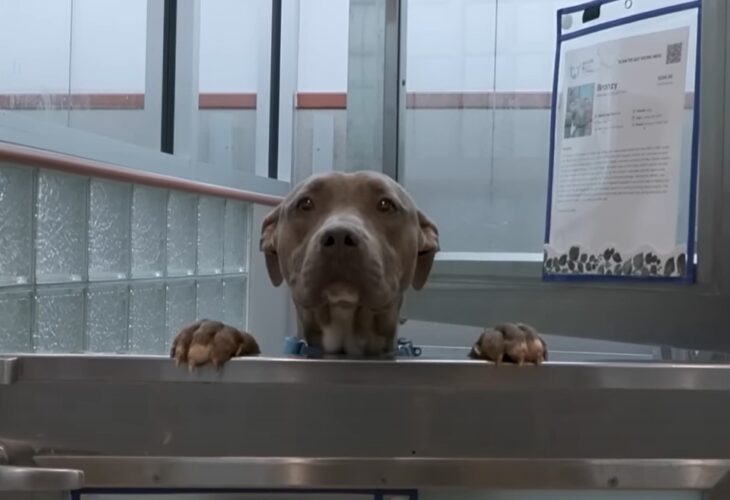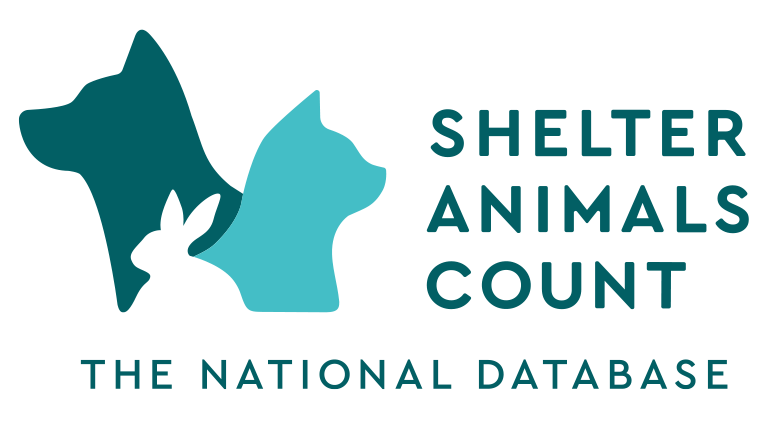Big Dog Behavior Data: Shelter Animals Count with Hill’s Pet Nutrition
December 13, 2024

PBS
By: Courtney Norris and Dorothy Hastings
Published: February 15, 2023
In the first 14 months of the pandemic, nearly one in five American households adopted a cat or dog. But as COVID precautions shift and inflation takes its toll on the economy, many of those pets are going back into shelters — creating a crisis of capacity.
Four percent more animals entered shelters than left last year — and animals are sitting in shelters for longer now than at any time in the past four years, according to Shelter Animals Count, a national database for shelter animals.
Compounding that concern is that 88 percent of shelters have reported being short on staff during the pandemic, according to a survey from Best Friends Animal Society. Meanwhile, in January of last year, there were nearly 60,000 more dogs and 40,000 more cats available for adoption than at the same time the previous year..
To get animals into homes, shelters have lowered adoption fees and are offering resources to current owners whose finances might make them unable to keep their pets.
Lisa LaFontaine, CEO of the Humane Rescue Alliance, said the organization’s program “Treat to Return” helped 642 pets in the Washington, D.C., area stay with their owners last year by paying to treat minor medical issues the owners otherwise couldn’t afford. She said rising costs have put pet owners in a tough spot.
“We’ve started to do things like give out free pet food,” LaFontaine said. “Last year, we gave out nearly 400,000 pet meals so that people didn’t have to worry about food if they were struggling.”
The price of pet products was up nearly 12 percent last November compared to the same time in 2021, with the price of pet food up more than 15 percent, according to Labor Department numbers.
“There’s no question that pet ownership is getting more and more expensive and some folks on the lower end of the income spectrum are just going to get priced out,” Matt Schulz, chief credit analyst at LendingTree, told NewsHour.
What’s more, pet services — including veterinary costs — have ticked up more than 9 percent in the last year, according to Labor Department data. As inflation affects all aspects of the economy, it has also forced some families to make tough decisions to keep their households afloat. According to a 2022 Forbes survey, 42 percent of pet owners said a vet bill of $999 or less would cause them to go into debt, and 44 percent said they used their credit card to pay for a vet bill.
Linda Wallace, an associate veterinarian at Gold Country Veterinary Hospital in Auburn, California, has seen costs increase for her clients.
“We’ve got increased costs of doing business because our supplies are costing more. Our power costs more. Keeping the lights on is a more expensive process, so we have to keep up with that in our prices, which can be very frustrating to our clients,” Wallace told NewsHour. “Sometimes the care we’re recommending is beyond what the budget can hold, and that’s very challenging.”
Wallace is a board member of The Pet Fund, a nonprofit that provides financial assistance to pet owners for treatments for their furry companions like chemotherapy and different chronic medical conditions. Every year, they get thousands more requests than they have the funds for.
“It was tough during the pandemic,” Wallace said. “Charitable donations dropped as people were unsure about what was going to happen with their finances.”
A lack of funding is common for animal welfare organizations across the country. But those in less populated areas are hit hardest.
The Humane Society of Northern Virginia, an hour outside Washington has seen an uptick in calls from owners struggling to care for their pets. Director Sherry Turner said that while volunteers have stepped in to foster animals, there aren’t enough adopters, and she doesn’t have the space to take in every pet in need.
“We’ll never just say no; we’ll do everything and anything we can do to talk people through maybe an issue that they might be having with their pet so that the pet can stay home,” she told the NewsHour.
That includes helping cover the cost of things like medical care, pet food and even grooming.
Lucky Dog Animal Rescue, located in Arlington, Virginia, has no shelter. The amount of animals it can rescue at any given time depends on the number of foster volunteers.
“We really like to see more fosters stepping up because that can let us help more shelters that are suffering from these problems of over-intake and not enough animals getting out,” Mirah Horowitz, founder and executive director of Lucky Dog, told NewsHour. “It’s a supply chain issue at its heart. How do we move these animals from shelters where there are too many animals, there isn’t enough spay and neuter, and there’s not enough local adoptions to places that are desperate for animals?”
